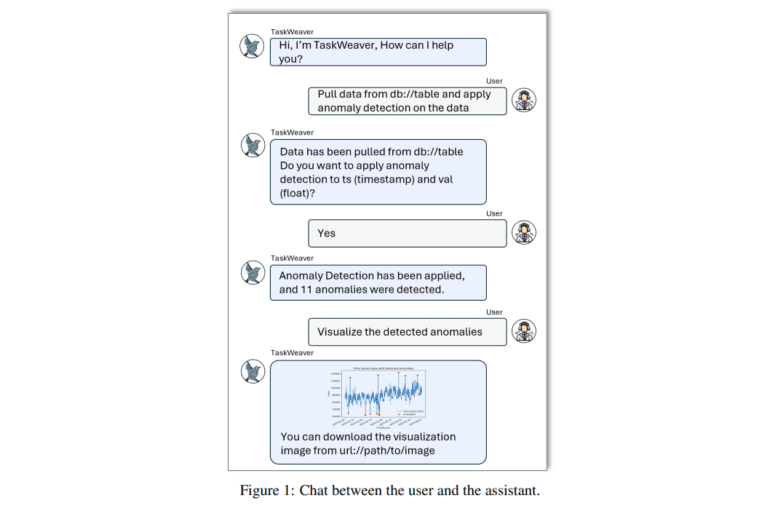TL;DR:
- Large Language Models (LLMs) like GPT, Claude, Palm, and Llama are transforming natural language processing.
- Microsoft’s TaskWeaver is a code-first framework for LLM-powered autonomous agents.
- TaskWeaver excels in handling complex data structures, dynamic plugin selection, and integrating domain-specific knowledge.
- Current frameworks have limitations in data handling, domain knowledge integration, and flexibility.
- TaskWeaver empowers agents to generate custom code autonomously for ad hoc queries.
- It enhances secure code execution and offers an intuitive interface for developers.
- Case studies demonstrate TaskWeaver’s effectiveness in diverse task management.
Main AI News:
Large Language Models (LLMs) like GPT, Claude, Palm, and Llama have been game-changers in natural language processing, enabling remarkable language creation and interpretation capabilities. These technological marvels have found applications in various domains, from chatbots and virtual assistants to content generation systems, redefining human interaction with technology. In the realm of autonomous agents, which possess the ability to plan tasks, monitor environments, and take actions, LLMs and other AI technologies have made significant strides.
Several frameworks have emerged in pursuit of harnessing LLMs for task-oriented conversations, including Langchain, Semantic Kernel, Transformers Agent, Agents, AutoGen, and JARVIS. These frameworks allow users to engage with LLM-powered bots in plain language, seeking answers to their queries. However, many of these frameworks exhibit limitations that hinder their effectiveness, particularly when dealing with data analytics tasks and domain-specific scenarios.
A notable deficiency in most current frameworks is the lack of native support for handling intricate data structures such as nested lists, dictionaries, or data frames. This becomes a significant roadblock for LLM-powered agents working with complex data. In many instances, existing frameworks resort to encoding such data structures as strings or JSON objects or persisting data to disk, which, while functional, can become unwieldy and error-prone, especially with large datasets.
Another drawback of these frameworks is their inability to seamlessly incorporate domain knowledge into the planning and code-generation process. Despite providing rapid engineering tools and examples, they often fall short in systematically integrating domain-specific information.
Furthermore, the rigidity of current frameworks poses challenges in aligning the planning and code generation with specific domain requirements. Many of these frameworks lack the flexibility to accommodate a wide range of user demands, especially when handling ad hoc queries. Writing separate plugins for each ad hoc request is neither practical nor scalable. In such cases, the ability of agents to autonomously generate custom code to fulfill user queries becomes imperative.
Addressing these limitations, Microsoft’s research team introduces “TaskWeaver,” a groundbreaking code-first framework tailored for LLM-powered autonomous agents. TaskWeaver stands out with its unique capability to treat user-defined plugins as callable functions, transforming user requests into executable code. This innovation empowers TaskWeaver to excel in handling sophisticated data structures, adapt to diverse plugin usage scenarios, and dynamically select the most suitable plugins, mitigating the shortcomings of existing frameworks.
TaskWeaver leverages the coding prowess of LLMs to implement intricate logic and seamlessly integrates domain-specific knowledge through practical examples. Moreover, it provides developers with an intuitive interface and enhances the secure execution of generated code. In this document, the research team presents an in-depth exploration of TaskWeaver’s architecture and implementation, accompanied by several case studies showcasing its prowess in managing diverse tasks.
Conclusion:
TaskWeaver emerges as a robust and versatile framework, offering the capability to create conversational agents equipped with intelligence to tackle complex tasks and adapt to specific domain requirements. Microsoft’s TaskWeaver represents a significant leap forward in the world of LLM-powered autonomous agents, promising a brighter future for intelligent and adaptable technology solutions.

